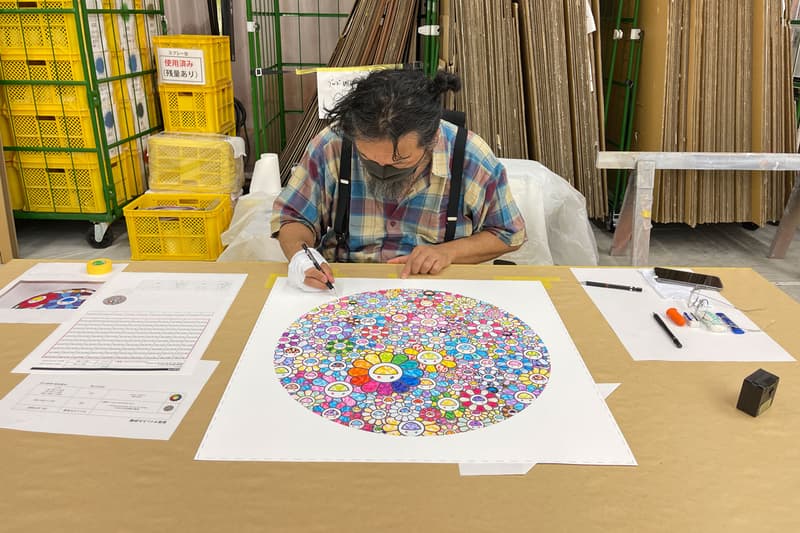
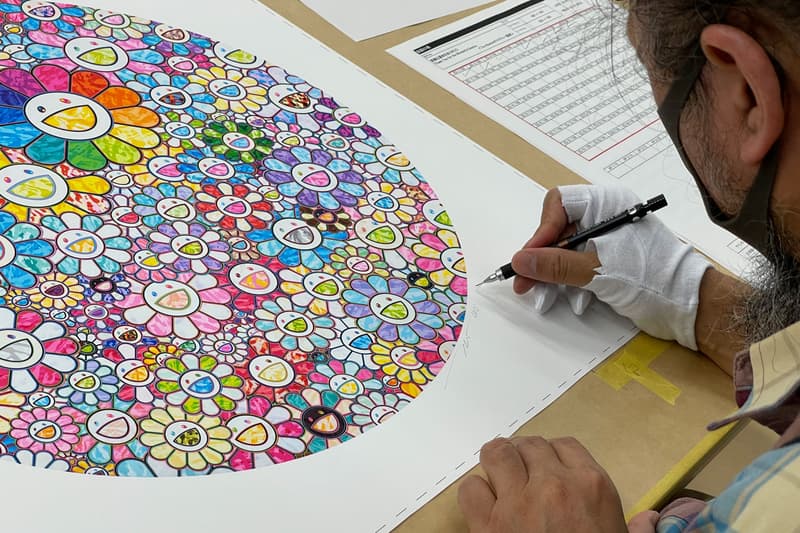 Renowned Japanese artist, Takashi Murakami evokes sentiments of bliss and happiness through his highly-popularized works of art that seamlessly merges commercial imagery, anime, manga, and traditional Japanese styles and subjects. Using his artwork as a force for good, Murakami in partnership with Absolut Art will be releasing an exclusive limited-edition print signed by the visionary talent to benefit The Kitchen.
Renowned Japanese artist, Takashi Murakami evokes sentiments of bliss and happiness through his highly-popularized works of art that seamlessly merges commercial imagery, anime, manga, and traditional Japanese styles and subjects. Using his artwork as a force for good, Murakami in partnership with Absolut Art will be releasing an exclusive limited-edition print signed by the visionary talent to benefit The Kitchen.
To commemorate The Kitchen’s 50th anniversary and celebrate the New York-based nonprofit’s longstanding commitment to showcasing innovative works of artists across various disciplines, proceeds from the Murakami print, dubbed, Thank You for the Wonderful Destiny will be donated to support the beloved space’s renovations. “I truly love prints and edition works. I am very passionately involved in artwork editions that can stimulate us in the context of something like a mind game. This edition was also produced with such enthusiasm,” says Takashi Murakami.
As a way to support this initiative and create opportunities for innovative artists forging new ground, 100 of the signed prints priced at $1,000 USD will further the advancement of the arts organization and its mission to champion all forms of art. “Takashi Murakami’s ability to elicit joy and happiness while simultaneously helping to democratize the art world perfectly embodies the spirit of Absolut Art where we strive to make art more accessible and enjoyable for both first time buyers, and seasoned collectors around the world,” says Absolut Art Global Creative Director, Michelle Grey. This charitable print continues Absolut Art’s long history of giving back to artists, causes, and arts organizations.
To cop Murakami’s limited-edition print head to Absolut Art’s site to sign up before Thank You for the Wonderful Destiny drops on July 15. 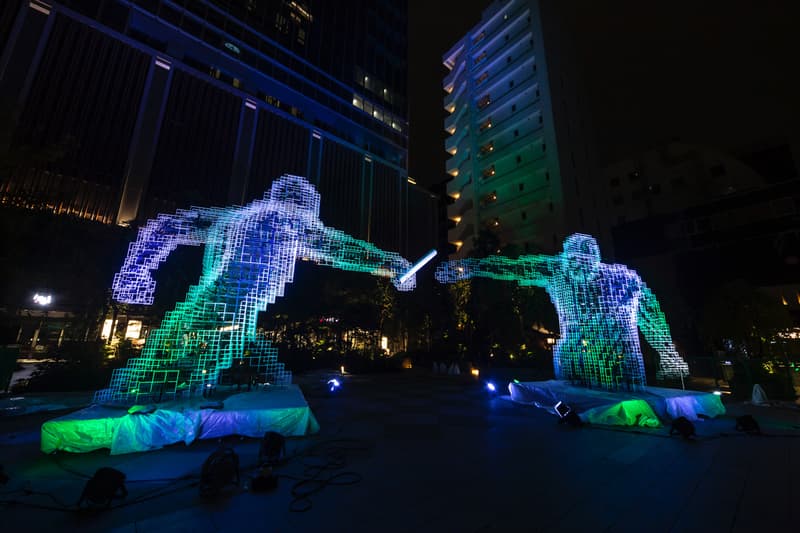
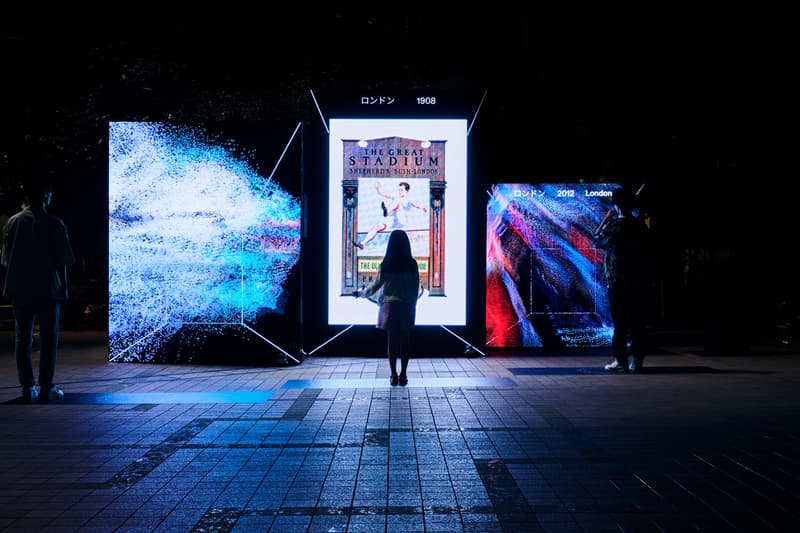 Since its inception in 1896, the Olympic Games have shown to be the pinnacle sporting event on the international stage. For the first time ever, there will be an Olympic Agora, a project that aims to further blend sport and culture, by entwining the games storied history with a stunning display of visual art installations and exhibitions.
Since its inception in 1896, the Olympic Games have shown to be the pinnacle sporting event on the international stage. For the first time ever, there will be an Olympic Agora, a project that aims to further blend sport and culture, by entwining the games storied history with a stunning display of visual art installations and exhibitions.
For those in the area, the Olympic Agora will be located across Tokyo’s historic Nihonbashi district. However, as the games are closed to the public, the Olympic Foundation for Culture and Heritage will be hosting virtual tours of the event. The site includes four major installations, along with work from a range of artists and studios — from Xavier Veilhan, Rinko Kawauchi and Makoto Tojiki, to six Olympian & Paralympian artists in residence, Moment Factory studio and more.
Speaking on Tojiki’s incredible light installation, Solidarity and Collaboration (2021), the artist himself noted:
“In a world where people and society would keep running, the COVID-19 pandemic unexpectedly put the brakes on them. I think it is the role and power of art to present the future when people suddenly stop. One of the features of my work is that it makes people stop. In front of the work, if people are galvanised and moved by the dynamism of shape and light, a surprise-filled smile will form and surely bring about positive hope.
At this moment, in works that call into question personal boundaries, people are already part of the outside of these boundaries. This means that people are participants in the installation.
I want to create an impression and spark positive feelings among the visitors to the Olympic Agora through my installation. I want people to recognise that this is a special moment and allow people to participate in it.”
The Olympic Agora is on view in Tokyo and virtually until August 15.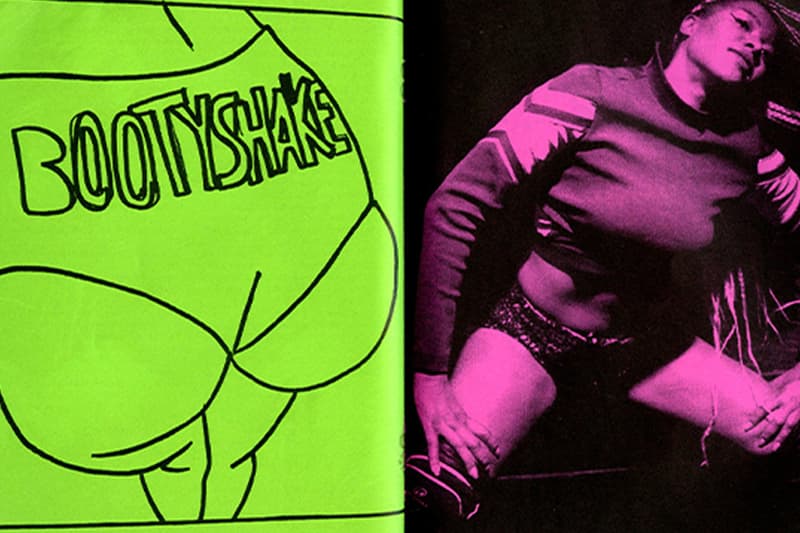
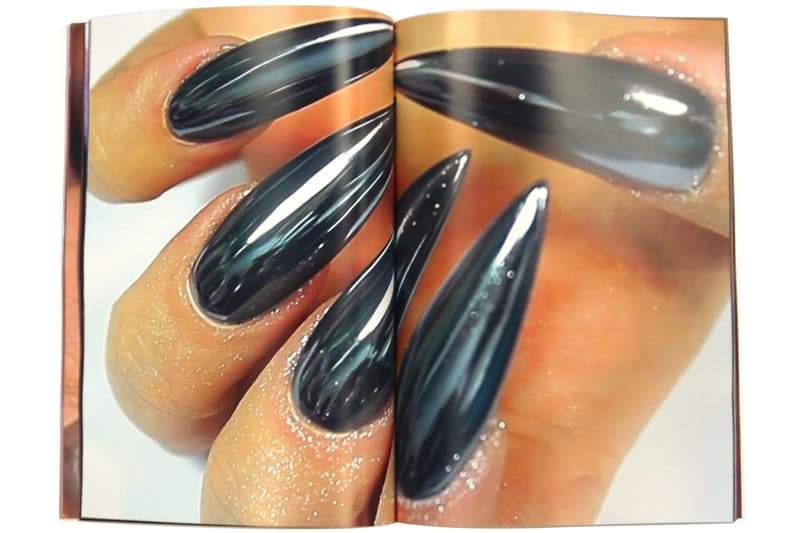
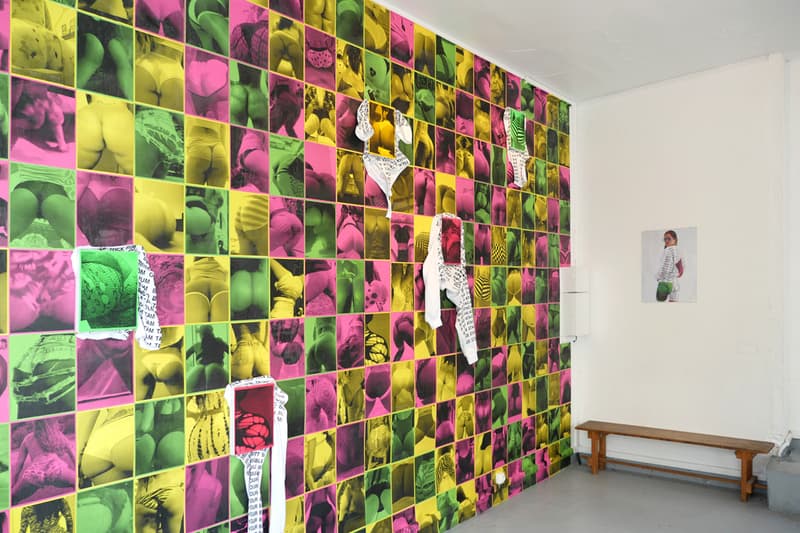 Aïda Bruyère is a French artist of Malian-descent who uses her love for imagery as a way to explore questions around the human figure. Her body of work spans everything from an image archive of hundreds of YouTube manicure tutorials, to the dancehall twerking battles that are the focus of her upcoming exhibition at Paris’ Palais de Tokyo.
Aïda Bruyère is a French artist of Malian-descent who uses her love for imagery as a way to explore questions around the human figure. Her body of work spans everything from an image archive of hundreds of YouTube manicure tutorials, to the dancehall twerking battles that are the focus of her upcoming exhibition at Paris’ Palais de Tokyo.
Curated by Adélaïde Blanc, Bruyère examines the devices that underpin the system and expression of identity in urban countercultures. This fascination goes back to her childhood, where she was particularly fond of the many aspects attributed to dance — from the poses and attire, to the accessories and event spaces. The gestures she highlights are constructed to go with and against predetermined notions of sexual, political or colonial images of the body.
Moreover, Bruyère “transposes into the codes of contemporary art the cultures that constantly regenerate themselves and which inspire fashion so as to better valorise the creative people who are often marginalized and drained by the cultural industry,” as said by Elephant Magazine‘s Juliette Soulez.
Catch Aïda Bruyère’s ode to dancehall at Palais de Tokyo from November 26 to March 20, 2022.
In other news, check out the new book on New York’s forgotten King of Grills.
Palais de Tokyo
13 Avenue du Président Wilson
75116 Paris, France

No comments:
Post a Comment